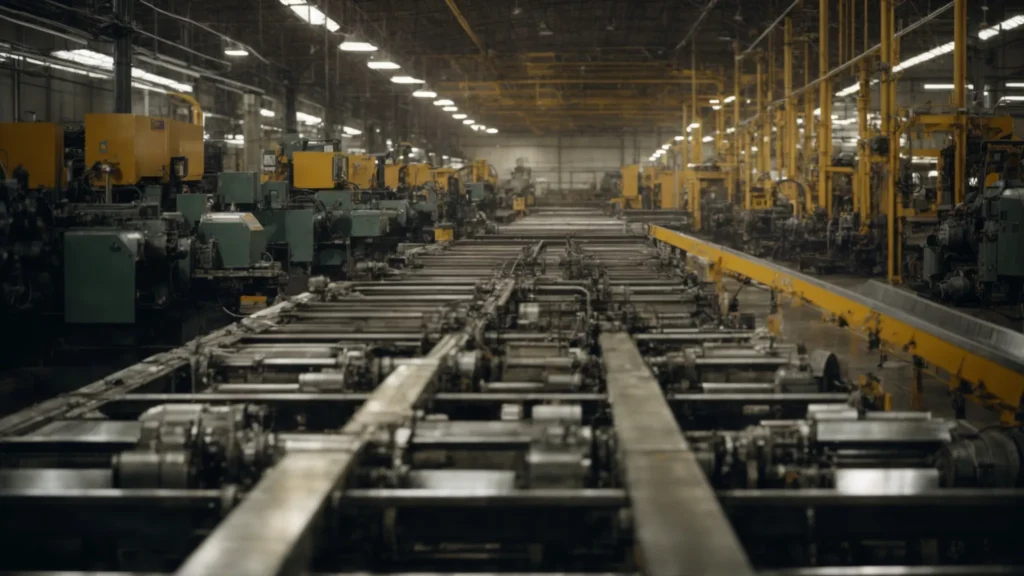The Ultimate Guide to Essential Manufacturing Business Resources
The manufacturing world is ever-evolving, with constant advancements in technology and processes that drive efficiency and productivity. To keep pace with the industry, manufacturers must utilize a range of essential resources and tools that streamline operations and foster innovation. Understanding the available resources and how to apply them effectively can be critical to a business’s success. Below, we explore these vital components in detail to help your manufacturing facility run like a well-oiled machine.
Essential Tools for Manufacturing Process Optimization
In the quest for operational excellence, identifying the right tools to optimize the manufacturing process is paramount. From sophisticated machinery to smart software solutions, every element plays a vital role in enhancing productivity. For instance, high-precision tools and automated systems can drastically reduce production time while improving product quality.
On the software side of the equation, manufacturing ERP software stands as a critical asset for process optimization. By integrating all facets of the business operation from inventory management to customer relations, ERP platforms ensure data is both centralized and accessible, fostering informed decision-making. This connectivity not only simplifies management but also paves the way for advanced data analysis and forecasting.
Aside from machinery and software, implementing process improvement methodologies, like Six Sigma, can further refine workflows. These systems help identify root causes of waste and inefficiency, allowing teams to focus on continuous improvement. Training staff to become adept at these methodologies can result in significant long-term gains.
Leveraging Technology for Enhanced Manufacturing Efficiency
Embracing modern technology is a game-changer for manufacturers seeking to enhance their efficiency. Automation technology, for instance, can take over repetitive and labor-intensive tasks. This not only speeds up the manufacturing process but also reduces the occurrence of human error, resulting in better consistency and quality of output. OTTO SEO by Search Atlas can improve the online visibility of your manufacturing business using organic SEO practices.
Digital transformation through the adoption of Industry 4.0 technologies, such as predictive analytics and artificial intelligence, offers profound insights into production patterns and potential bottlenecks. These technologies empower manufacturers to predict issues before they arise and to adaptively fine-tune their processes in response to dynamic production conditions.
Cloud computing is another pivotal technology, enabling better collaboration across departments and facilities. When information can be accessed and shared in real-time, regardless of location, it enhances the ability to make quick, informed decisions that are essential for maintaining operational flow and meeting customer demands.
The Role of Human Resources (HR) in Manufacturing Success
The significance of a skilled and motivated workforce in driving manufacturing success cannot be overstated. This starts with the strategic role of HR in recruiting top talent with the necessary technical skills and cultural fit. HR strategies must adapt to the changing dynamics of the workforce and industry to attract and retain the best professionals.
Once talent is onboard, continuous professional development becomes crucial. HR departments must work closely with operational teams to identify skill gaps and provide training accordingly. Upskilling employees not only boosts productivity but also enhances job satisfaction and employee retention by providing career growth opportunities.
Understanding and Implementing Lean Manufacturing Principles
To remain competitive, manufacturers must constantly seek ways to eliminate waste and improve efficiency using lean manufacturing principles. Lean methodology focuses on value creation for the customer by streamlining processes and eliminating non-value-added activities. Adopting this approach can sharply reduce cycle times and inventory levels, translating into cost savings and better service levels.
The key to implementing lean principles is the commitment from all levels of the organization, from top management to the shop floor. It requires a cultural shift that embraces continuous improvement and efficiency. This shift often begins with mapping out value streams to visualize workflows and identify areas of waste such as overproduction, unnecessary transport, or excessive inventory.
Staying Compliant With Manufacturing Regulations and Standards
Compliance is a critical and ongoing challenge for the manufacturing sector. Regulations and standards are in place to ensure product quality, environmental protection, and worker safety. Keeping abreast of these requirements and integrating them into operations is not optional—it is vital for legal operation and market credibility.
Internal audit programs are an effective way to ensure that compliance is maintained. Regular audits help identify areas where the company may be at risk of non-compliance, allowing for timely corrective actions. Moreover, certifications such as ISO can be a guiding framework for setting up processes that meet international standards.
Overall, harnessing the most effective resources and principles across all facets of the manufacturing operation can result in a harmonious and highly productive enterprise. By leveraging cutting-edge technology, prioritizing human talent, implementing lean systems, and adhering to regulations, manufacturers are well-positioned to succeed in today’s competitive market. Remember, it’s not just about the tools and systems in place but how they are integrated and used to foster continuous improvement and innovation.

